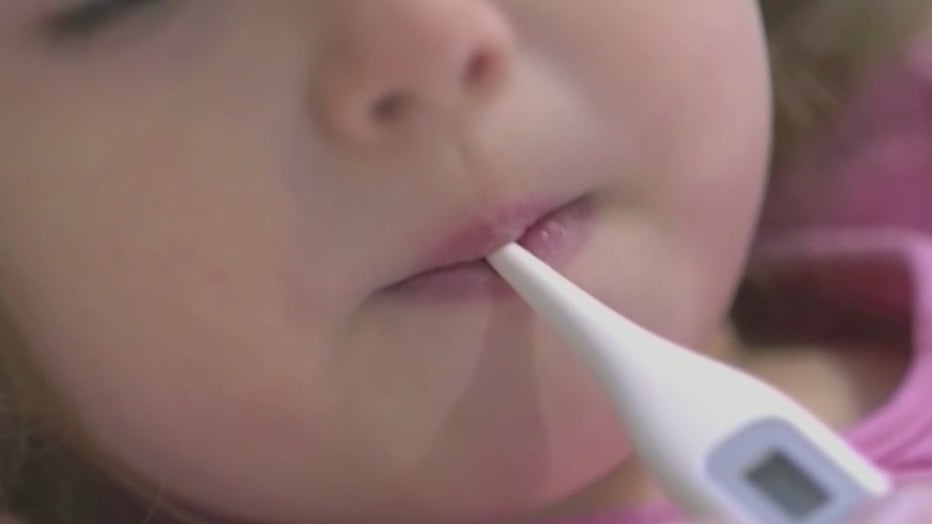High flu numbers, shortage of amoxicillin create ‘headache’ for pediatric ERs
High flu numbers have hospitals bracing for the holidays
A busy flu season coupled with shortages of some over-the-counter and prescription medications is creating new challenges for hospitals, particularly those specializing in pediatric care. How the staff at Children’s Healthcare of Atlanta are handling it.
ATLANTA - A busy flu season coupled with shortages of some over-the-counter and prescription medications is creating new challenges for hospitals--particularly those specializing in pediatric care.
Matt Linam, an Associate Professor of Pediatric Infectious Diseases at Children’s Healthcare of Atlanta, says respiratory infections like RSV and the flu have been the main culprits behind higher ER volumes since the start of the season.
"Our ER’s have been just really busting at the seams for the last few weeks with some of our highest volumes we’ve seen in a long time," he said.
Linam said with warmer weather conditions over the last week, they did see a slight dip in the number of children coming in, but as colder temperatures and the holidays approach, they’re preparing for those numbers to jump right back up.
"You’ve got cold weather pushing people in doors, you’ve got people traveling over the holidays for Thanksgiving," he said.
Another problem they’re dealing with is a nationwide shortage of amoxicillin which helps treat bacterial infections like ear infections and pneumonia.
"Most of the shortage, or at least what we’re seeing right now, is related to the liquid suspension so of course that is more of an issue for kids," Linam explained.
He said parents shouldn’t worry too much. Children’s is relying on chewable tablets of amoxicillin for younger kids who need it and capsule amounts for older kids. They can also use other antibiotics to substitute for it.
Linam maintained that the best way to avoid getting sick is getting the flu shot and remembering to wash your hands.

He shared more tips for staying healthy:
If you are sick or experiencing symptoms, health officials recommend you stay home. You can find more tips from Children’s Health Care of Atlanta on how to stay healthy this holiday season below:
- Make sure that your child and their siblings are up-to-date on all their vaccinations, including the COVID-19 vaccines and especially the flu shot. We have seen an increase in the number of children with flu. Find a vaccine site here. Parents, caregivers, grandparents should get their flu and COVID-19 vaccinations as well.
- While it may be difficult to differentiate between the symptoms of a common cold, flu, respiratory illness and/or COVID-19 infection, if your child has any symptoms of infection, the best course of action is to keep them at home and out of the classroom until their symptoms have resolved.
- Prevention is key. We have all heard it a million times, but proper handwashing helps avoid the spread of viruses.
Please remember:
- Get vaccinated
- If you are sick, stay home
- Wash your hands
Treatment and Prevention for RSV:
- If your child is too young to blow his nose, use a nasal aspirator or bulb syringe to remove sticky nasal fluids.
- Treat fever with acetaminophen—never aspirin.
- If your child has difficulty breathing or eating, contact a health care professional immediately.
Treating and Prevention for the Flu:
The flu is common but often unpredictable. The best way to keep your family healthy is to stay up to date on your annual flu vaccinations. You can also help keep your family well by:
- Staying away from others with a fever, cough or runny nose.
- Encouraging frequent handwashing.
- Watching your distance by keeping space between you and others.
- Keeping noses and mouths covered when coughing or sneezing.
- Making sure your family members are up to date on their vaccinations.
- Keeping hard surfaces clean to help prevent the spread of germs.
- Giving your child’s immune system a boost with plenty of sleep, exercise, and a nutrient-rich diet full of flu-fighting fruits, vegetables and protein.
- Remember, it’s never too late to get a flu shot.

